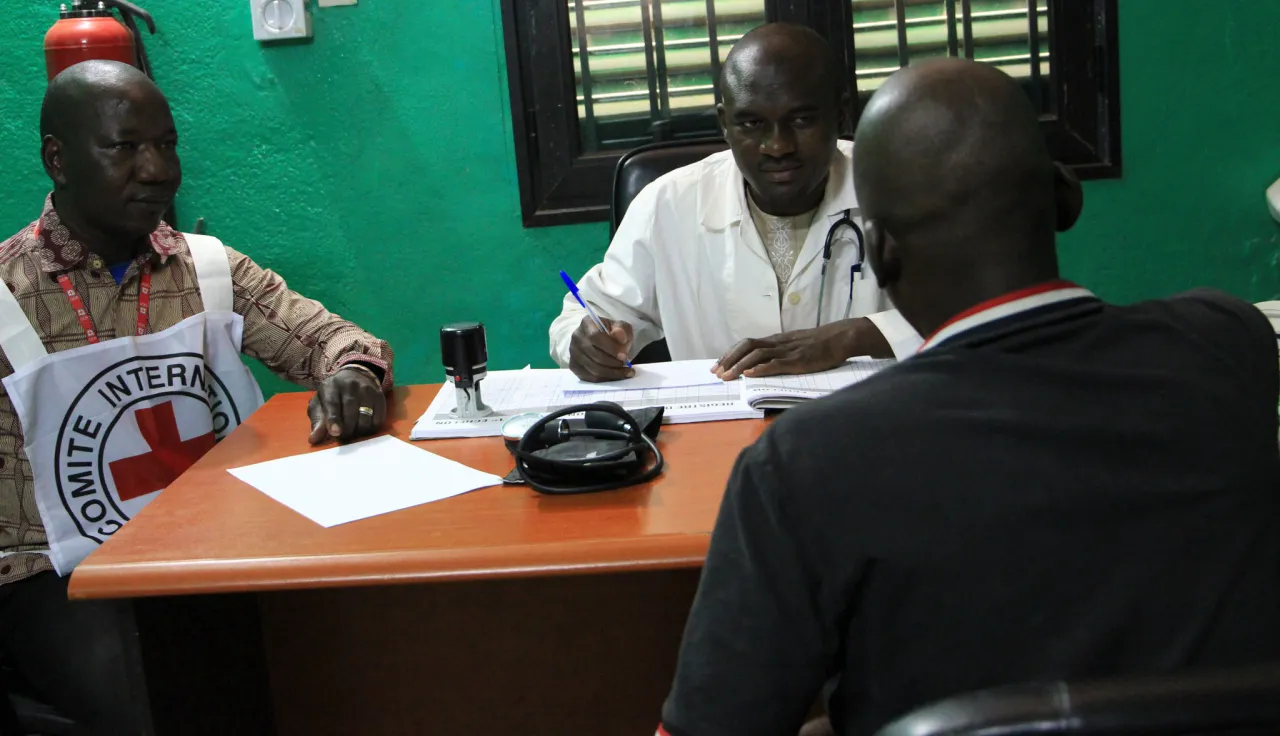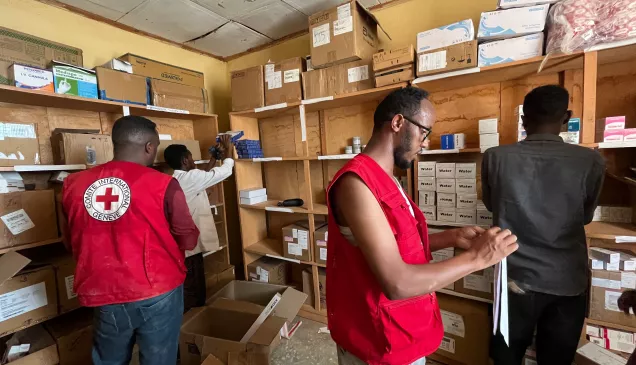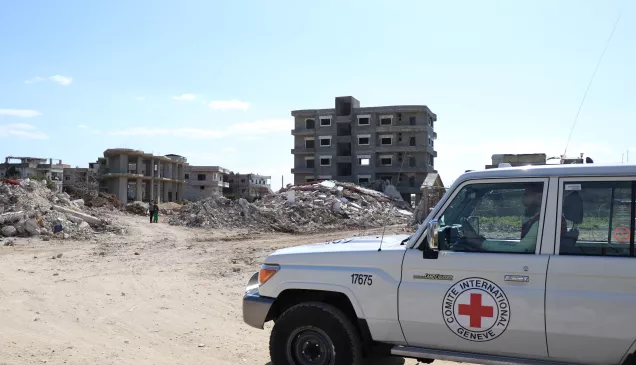Africa CDC and ICRC discuss COVID-19 prevention in places of detention

The COVID-19 pandemic has overwhelmed health care systems all over Africa and the world. Though African governments have taken measures to contain or fight the virus in the communities, putting in place specific measures to protect vulnerable populations such as detainees remain a challenge. If some critical measures are not put in place, in places of detention, an outbreak of the virus in a prison could be devastating, with a potential new humanitarian crisis for the population in such areas grappling with congestion, lack of access to clean water, and weakened health care systems.
To assess the situation with a view to looking at the existing guidance and health services delivery in places of detention in this context of COVID-19, their effectiveness and possible improvement measures, the Africa Center for Disease and Prevention Control (Africa CDC) and the ICRC jointly organized a webinar on the 5 June 2020 with specialists and practitioners.
The event that gathered over one hundred participants from all over the continent, highlighted the importance of protecting the lives and health of persons in detention, and the need to uphold full respect of their dignity and fundamental rights. Areas of attention when putting in place preventive measures in prisons, included the need to prevent person to person transmission, reduction of contamination of surfaces and the imperative to implement health care measures in prisons without discrimination, especially in this context where the detention population is vulnerable to COVID-19. Participants further identified challenges including, maintaining physical distances in an overcrowded setting, limited movement, access to water, among others and recommended specific measures to be put in place accordingly.
"Poor hygiene conditions in places of detention and limited access to health care services exacerbates detainees vulnerability to COVID-19," said Dr. Elena Leclerc, ICRC Health in Detention programme coordinator. "Detainees should enjoy the same right to health care, as people in the community. It is therefore very important for authorities to consider detainees vulnerability factors while putting in place contingency plans. These include ages of detainees, weakened immune system, chronic illnesses and gender."
Speaking about the conditions of detention and policing in Africa, the African Union Special Rapporteur on Prisons, Conditions of Detention and Policing in Africa, Honorable Commissioner Maria Terresa Manuela commended measures taken by most African countries to reduce the number of inmates in the context of COVID-19, and called on other countries that haven't done so, to deconfine prisons as per their local legislations, in order to improve leaving conditions in detention centres and facilitate respect of COVID-19 preventive measures.
The Deputy Director of Africa CDC, Dr Ahmed Ogwell Ouma, reminded his institution's role in guiding and supporting African states in the fight against COVID-19 and highlighted the importance of an all stakeholders' approach to fight the virus, including the African Union, Africa CDC, ICRC and other partners.
"Africa CDC is committing to support African states, to ensure those who are in detention centres are protected from the virus and affected people are treated," said Dr Ahmed Ogwell Ouma. "We called on all actors and partners such as ICRC to remain committed and to continue supporting Africa CDC and African stated in the fight against COVID-19."
Speakers at the event included Honorable Commissioner Maria Terresa Manuela, Africa, the African Union Special Rapporteur on Prisons, Conditions of Detention and Policing in Africa; Patrick Youssef, ICRC regional director for Africa; Dr Ahmed Ogwell Ouma, Deputy Director of Africa CDC; Dr. Elena Leclerc, ICRC Health in Detention programme coordinator; Dr J.O.R BYABASHAIJA, Commissioner General of Uganda Prisons Service; and representative from International Organization of Migration, among others. This was the first of a series of three consultations planned with the Africa CDC, focusing on health care in detention during this COVID-19.



